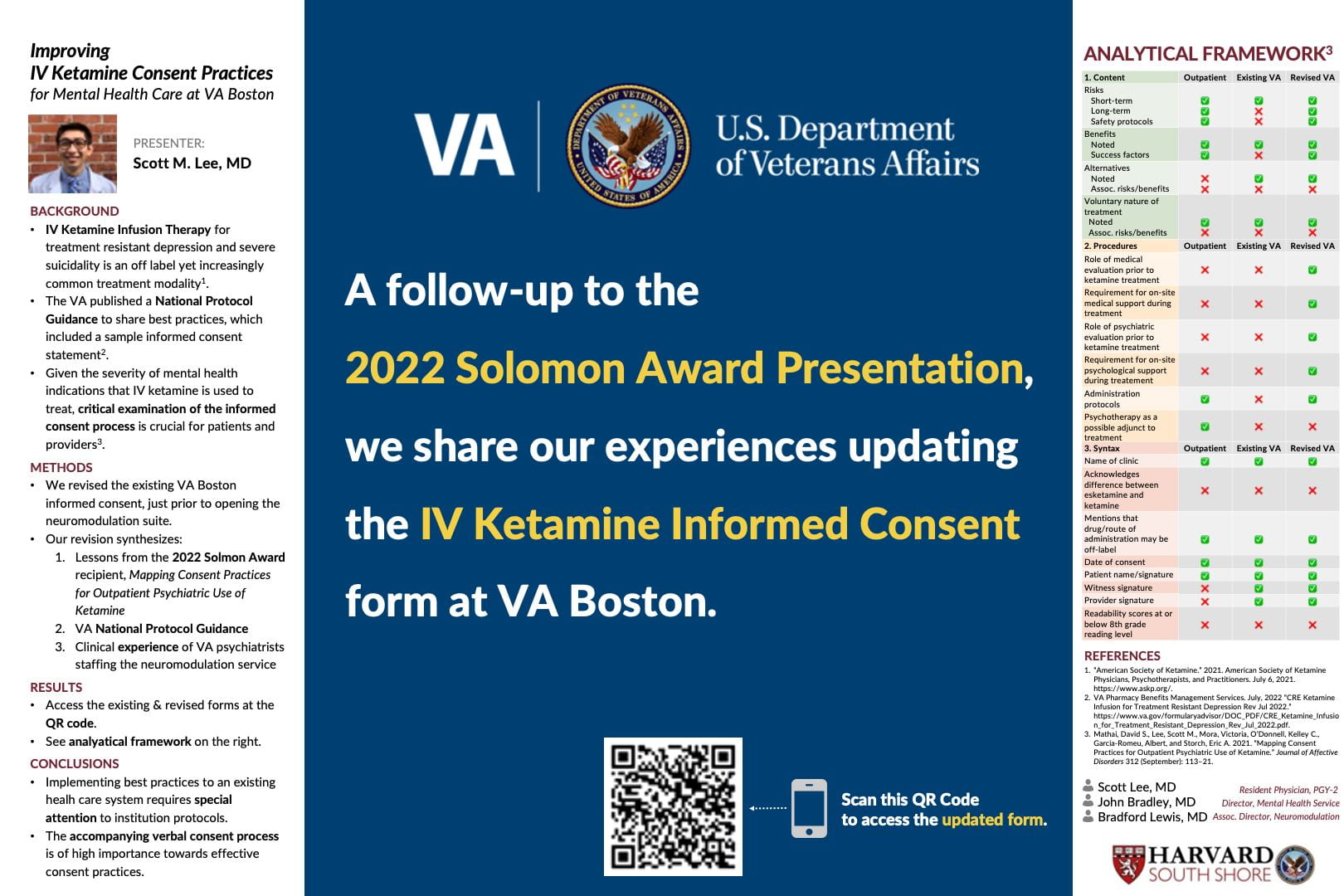Scientific Abstract
Background: IV Ketamine Infusion Therapy for treatment resistant depression and severe suicidality is an off label yet increasingly common treatment modality. This is evidenced by over 400 active clinical practices affiliated with the American Society of Ketamine Physicians, Psychotherapists, and Practitioners1. As IV Ketamine administration for mental health (MH) has grown, the VA published a National Protocol Guidance in July 2022 to share best practices, which included a sample informed consent statement.2 Given the severity of MH indications that IV Ketamine is used to treat, critical examination of its consent form is beneficial to patients and providers. Improvements informed by scientific, ethical, and pragmatic considerations work to mitigate risk and promote shared decision making3.
Methods: We revised the existing VA Boston informed consent form for IV ketamine, just prior to the opening of the neuromodulation suite. Our work synthesizes a) lessons from the 2022 Solomon Award recipient, Mapping Consent Practices for Outpatient Psychiatric Use of Ketamine, b) VA National Protocol Guidance, and c) clinical experience of the neuromodulation service. We used the analytical framework from the Mathai manuscript to evaluate our revisions3.
Results: The existing VA form either omitted or incompletely discussed the following: risks/benefits of alternatives & no treatment, psychotherapy as an adjunct, difference between ketamine & esketamine, long-term adverse effects, medical & psychiatric evaluation and on-site support, administration & safety protocols, and success factors. Our revised form completely discussed all the aforementioned items except for the first three listed.
Conclusions:Understanding best practices and implementing these practices to an existing health care system are two distinct processes. Our experience revising the VA Boston informed consent form not only highlights this but also underscores the importance of the accompanying verbal consent practice. This timely update invited critical examination of informed consent practices at VA Boston. We welcome your suggestions as we begin to implement this new form for our Veterans.
Search posters

